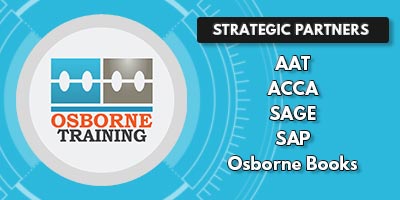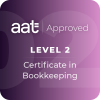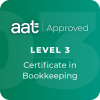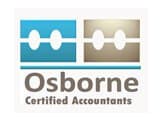
The Top 10 Soft Skills for Successful Accountants
In addition to technical expertise, successful accountants possess a strong set of soft skills that contribute to their effectiveness and professional growth.
These soft skills enable accountants to excel in their roles, build strong client relationships, and navigate the dynamic landscape of the accounting profession. In this blog, we will explore the top 10 soft skills that are essential for accountants to thrive in their careers.
1. Effective Communication:
Effective communication is paramount for accountants. The ability to convey complex financial information clearly and concisely to various stakeholders is crucial.
Accountants must be skilled in active listening, presenting ideas, and adapting communication styles to different audiences.
Strong communication skills lead to better collaboration, client relationships, and successful interactions within teams.
2. Client Relationship Management:
Building and maintaining strong client relationships is a key aspect of an accountant’s role. Accountants need to possess strong interpersonal skills, empathy, and the ability to understand client needs.
By actively listening, addressing concerns, and providing tailored solutions, accountants can build trust, enhance client satisfaction, and contribute to long-term client retention.
3. Analytical Thinking:
Analytical thinking is an essential soft skill for accountants. It involves the ability to analyze financial data, identify patterns, and draw meaningful insights.
Accountants with strong analytical thinking skills can identify issues, solve problems, and provide valuable recommendations.
This skill enhances their ability to contribute to strategic decision-making and adds value to their organization.
4. Critical Thinking:
Critical thinking complements analytical thinking and enables accountants to assess information objectively and make informed judgments.
Accountants must be able to evaluate financial data, identify potential risks, and consider the broader business implications.
By employing critical thinking skills, accountants can make sound decisions and navigate complex situations effectively.
5. Adaptability:
The accounting profession operates in a dynamic and evolving business environment. Accountants need to be adaptable and embrace change.
They should be open to learning new technologies, adapting to evolving regulations, and acquiring new skills.
Adaptability enables accountants to stay relevant, take on new challenges, and seize opportunities.
6. Collaboration and Teamwork:
Accountants often work as part of cross-functional teams, requiring strong collaboration and teamwork skills.
Accountants need to effectively communicate, share knowledge, and work collectively towards common goals.
By collaborating with colleagues from different departments, accountants can leverage diverse perspectives and skillsets to drive organizational success.
7. Time Management:
Time management is a critical skill for accountants who often face multiple deadlines and competing priorities.
Accountants must prioritize tasks, plan effectively, and allocate time appropriately.
By mastering time management skills, accountants can meet deadlines, reduce stress, and deliver high-quality work consistently.
8. Organization:
Organization goes hand in hand with time management. Accountants need to maintain organized workflows, manage documents efficiently, and stay on top of their responsibilities.
Being organized enables accountants to access information quickly, streamline processes, and work more efficiently. It also helps accountants maintain accuracy and avoid errors in their work.
9. Ethical Integrity:
Ethical integrity is a fundamental soft skill for accountants. Accountants are entrusted with sensitive financial information and must adhere to ethical standards.
They must demonstrate honesty, confidentiality, and a commitment to acting in the best interests of their clients and organizations.
Upholding ethical integrity builds trust, credibility, and a reputation for professionalism.
10. Leadership and Management:
Leadership and management skills are essential for accountants in positions of influence and responsibility. Accountants with strong leadership skills can inspire and motivate teams, provide guidance and mentorship, ultimately leading the organization to the success.
Effective leadership and management abilities contribute to a positive work culture, employee engagement, and long-term growth.
Over to you
While technical expertise is crucial, the top 10 soft skills discussed here are equally important for accountants aiming for success.
Effective communication, client relationship management, analytical and critical thinking, adaptability, collaboration, time management, organization, ethical integrity, and leadership skills empower accountants to excel in their roles.
By developing and nurturing these soft skills, accountants can enhance their professional effectiveness, build strong relationships, and thrive in the ever-changing accounting landscape.






